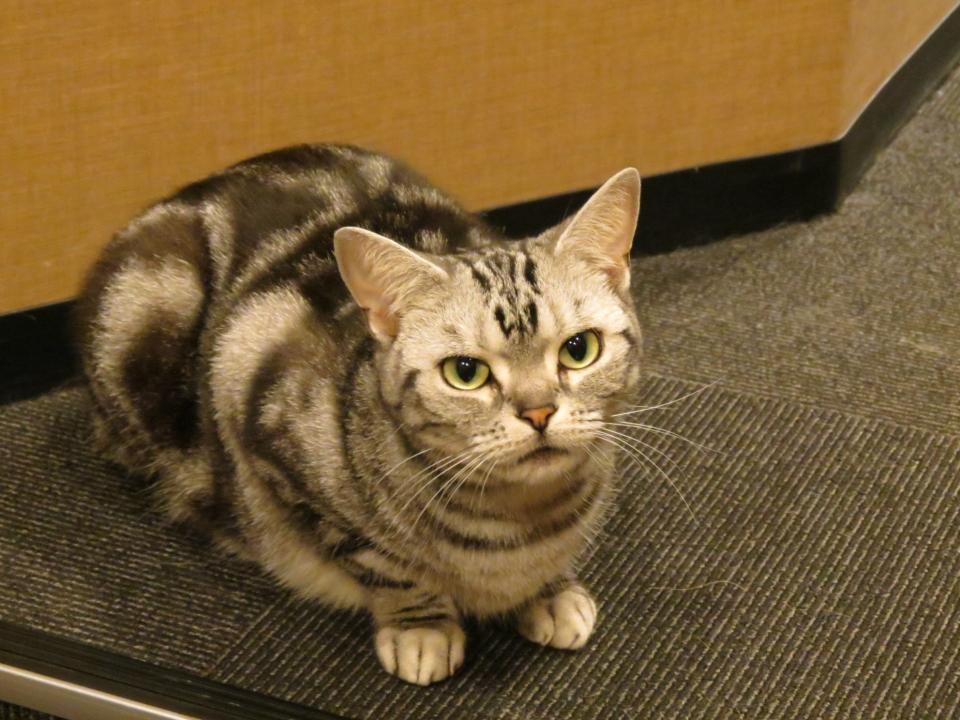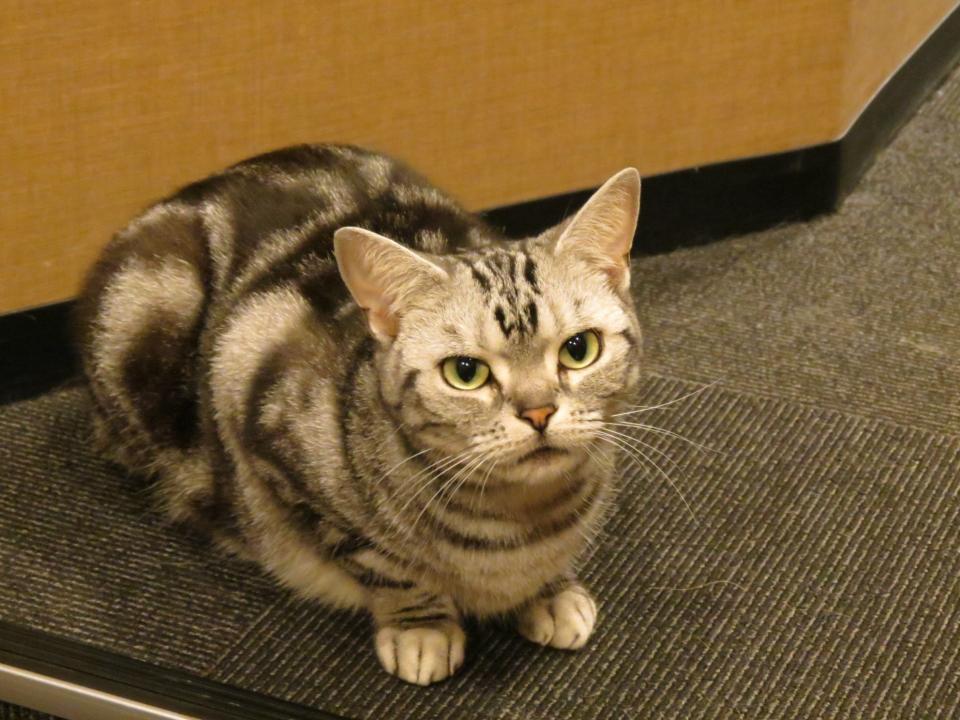Goodnight Kitty: Curfew Curtails Tokyo's Cat Cafés
As of June 1, Tokyo cat lovers deprived of feline affection will face something of a crisis as new animal welfare laws will go into effect requiring cat cafés, which provide kitty companionship for as little as $19 an hour, will be forced to close their doors at 10 p.m.
RELATED: Comment of the Day: Remembrance of Whoppers Past
“It will be difficult for my business,” said Takafumi Fukui, proprietor of the Calico Cat Café. “Cats are night owls and so are Japanese office workers. My customers in Shinjuku mostly visit us after their work during the week. Late hours benefit everyone. I worry that this could really hurt business and then what would we do with the cats?”
RELATED: It's Official: Fukushima Reactors 'Essentially Stable'
Looking after an animal is not such an easy task in Japan. Especially in Tokyo, the apartment rents are high and the rooms are small. In fact, in many apartment buildings in central Tokyo you are not allowed to keep a pet. So, the last few years, businesses such as cat cafés (猫カフェ) help animal lovers spend a good time playing with pets they can't have for around ¥1500 yen an hour. (Coffee usually costs extra.) Cat cafés became popular in Japan circa 2004 when the first one opened in Osaka, followed by the opening of the Neko no Café in Tokyo a year later. One customer told the Christian Science Monitor reported in 2008, "When it comes to having cats, it's a burden. I work and I don't have the time to take care of them in a responsible manner.” Currently there are least 25 cat cafés in Tokyo. The Ministry of the Environment said that there are about 150 cat cafés in the entire country.
RELATED: How the Yakuza and Japan's Nuclear Industry Learned to Love Each Other
“Most of time, people do not have the time to take care of a pet, because of their job situation, which is very tough,” Mr. Fukui said. He said his typical customers are women who come with friends — but not their kids. “Children under 13 are not allowed inside the cat café, because they can harm the animals.”
RELATED: Agatha Christie, Border Straddlers, and One Lonely Kitten
RELATED: Japan's Prime Minister Survives No-Confidence Vote
Naoko Fujita, 20, is a university student in Tokyo. She loves cats, however the apartment where she lives prohibits her from keeping a pet. Her friend Tatsuma Kato, 21, who is also a university student in Tokyo, and he said it was the first time he visited a cat café: “I feel relaxed in this quiet environment. Cats are quiet animals and very fun to play with.”
A professor at Hitotsubashi University who declined to give his name out of slight embarrassment at being known to pay for purring says his favorite cat café was packed at 1 a.m. when he visited a few weeks ago. “In many ways, these cat cafés are like hostess clubs. The cats all have names and their profiles written up in a book, and everyone has a favorite host or hostess. Instead of buying champagne for the girls, you buy cat food for your favorite babe," he said. "However, touching the pussycats is not allowed. You can look and they can crawl all over you, but picking them up or hugging them is a big no-no. Just like a hostess club—except a lot cheaper.”
When told that the cat cafés would no longer be open past 10 p.m., he was shocked. “That’s got to be the stupidest law yet. Cat curfews? Cats are nocturnal creatures. They like to be up late. And that’s about the only time many of us can visit them.”
It could have been worst. The Law for Animal Welfare and Management that is going into effect on June 1 was primarily aimed at prohibiting pet shops from selling or displaying animals, including cats and dogs, after 8 p.m. It is feared that keeping animals in narrow cages and bright lights at night can affect the growth hormone and therefore affect the health of the animals. The implication for the cat cafés was a bit of an unintended consequence, and after a public debate held by the Environment Ministry, cat cafés were able to push their curfew two hours later. “Over 1,716 opinions have been heard from the general public to discuss the issue,” the spokesman for the Ministry's Animal Welfare and Environment Control Unit said. The exception applies to places where cats are over 1 year old and are kept in spaces, like cat cafés, where they have space to roam freely.
This new law will be tested over two years and will be renewed after another round of public debate. The regulations also mandate closer supervision of animal auctions and the care of older or abandoned pets. Until now, temporary custody, homes for pets or “pet hotels” could temporarily look after animals whose owners were temporarily absent. However new organizations, which will be like rest homes for aged pets could start taking care of older pets “until the end.” In essence, the new laws pave the ways for pet retirement homes and hospices.
Mr. Fukui opened his Calico Cat Café in a suburb of Tokyo in 2007 and then opened the central Tokyo location in 2009 which is compromised of two floors where 53 cats among the customers. 40 more stay in a back yard and rest, and the cats are often exchanged during their duty hours. Up until the new curfew, his cat café stayed open until 1 a.m., and Mr. Fukui said it is often packed after midnight. “During the weekdays, the cat café in Shinjuku is almost empty all day,” he said. “Most of our customers are people who would like own a cat, but are not allowed to keep a pet in their apartments.” Or people who have a cat hair allergy and cannot bear to have one at home, or families in which one member is allergic.
While the Calico is a generalist, other cat cafés, as a Japanese government report explains, cater to specialties: “Some cat cafés are specialized in specific categories of cats, such as black cats, fat cats, rare-breed cats, or ex-stray cats."
It's common for the cats to have short tails or no tails at all. That's a because of Japanese superstition influenced cat breeding. “Japanese cats, according to urban legend, when they have long tails, the tails tend to split up into two, giving the cat the power to transform into other creatures," Mr. Fukui explained. "A long tail is often seen as the mark of a bake-neko (化け猫)—a were-cat.” Thus, people tended to only take care of short-tailed cats. "Nobody cut off the tails,” he added.
Will I have a job after June 1?
Photos and additional reporting by Jake Adelstein.


